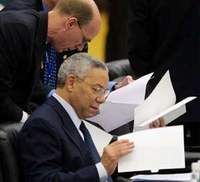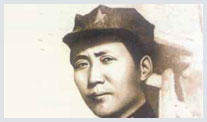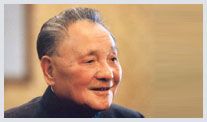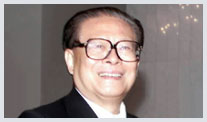|
China hosts APEC meetings 
|
| 2002-09-24 11:36:43 |
 From October 15 to 21, 2001, Shanghai played host to a series of APEC meetings, including the Senior Officials' Meeting, Joint Ministerial Meeting, CEO Summit, and the Informal APEC Leaders' Meeting. These meetings drew leaders of APEC members, 600 leaders in global corporate world and over 3,000 journalists from home and abroad to Shanghai. From October 15 to 21, 2001, Shanghai played host to a series of APEC meetings, including the Senior Officials' Meeting, Joint Ministerial Meeting, CEO Summit, and the Informal APEC Leaders' Meeting. These meetings drew leaders of APEC members, 600 leaders in global corporate world and over 3,000 journalists from home and abroad to Shanghai.
The APEC meetings in China gained worldwide attention, not only because the host country was China, a country that had been witnessing steady and sustained economic development, but also because APEC's achievements over the past decade or so had turned it into the world's most influential regional economic forum.
Centering around the theme "meeting new challenges in the new century, achieving common prosperity through participation and cooperation," leaders of member economies exchanged views on a wide range of issues, from the macroeconomic situation and the impact of the September 11 terrorist attacks to the future development of APEC.
The economic leaders' declaration was issued at the end of the informal APEC summit. It has reflected APEC members' consensus on issues as how to respond to opportunities and challenges brought forth by globalization and new economy and how to push forward regional cooperation and strengthen member economies' confidence and determination to overcome current economic difficulties.
The meeting also produced the Shanghai Accord, which reiterated member economies' determination to realize the Bogor goals and common prosperity. It will have far-reaching impact on the future development of APEC and promote sustained economic development in the region. The e-APEC Strategy, also unveiled at the meeting, provided guidelines for the development of the information technology industry.
 Other results of the meeting include the issuance of an anti-terrorism declaration and, at the suggestion of China, the formation of an APEC working group for the launch of a financial crisis prevention fund.
Other results of the meeting include the issuance of an anti-terrorism declaration and, at the suggestion of China, the formation of an APEC working group for the launch of a financial crisis prevention fund.
Common prosperity will be a major target for APEC in the future. The meetings in Shanghai not only expressed such a wish, but also, more importantly, did concrete work and achieved certain progress for that goal.
Chinese President Jiang Zemin commented that the meetings had achieved their pre-set goals. Leaders of other economies were also quite satisfied with the results, believing the meetings would have far-reaching and significant influences on the region.
Philippine President Gloria Arroyo said APEC should address not only trade and investment liberalization and facilitation (TILF) and economic and technical cooperation, but also economic security.
Arroyo highlighted money laundering, kidnapping, smuggling and terrorist activities as problems threatening economic security.
Arroyo praised the organizational work of the APEC meeting, describing it as "very efficient," and thanked China for its "excellent arrangement."
|
|










